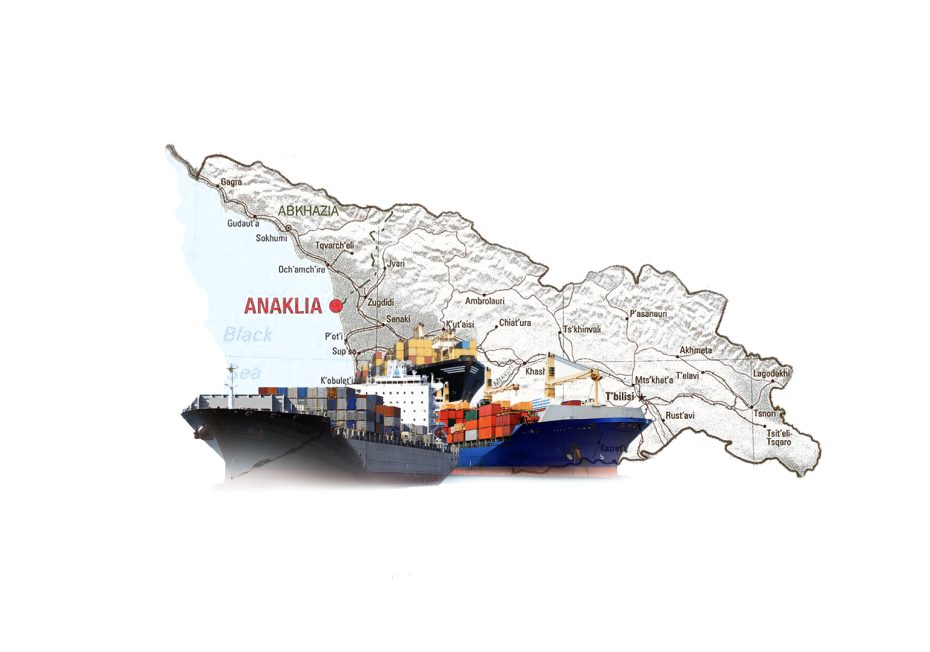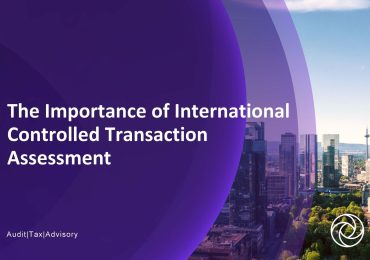In December last year, Georgian Prime Minister Irakli Garibashvili announced that the Georgian government decided to relaunch the construction of the long-awaited Anaklia deep-sea port on the Black Sea coast. It was announced that the state would own a 51 per cent stake in the port while looking for international investors. The Anaklia deep sea port is a highly important venture for Georgia as well as the entire South Caucasus both strategically and economically. The project worth 2.55 billion USD will be the first deep-sea port on the eastern Black Sea coast with the capacity to receive and host large container vessels. Anaklia will significantly boost regional connectivity and increase its transit potential, especially amid the growing importance of the Middle Corridor, a shipping lane between Europe and Asia via Kazakhstan, Azerbaijan, Turkey, and Georgia, in the wake of Western sanctions imposed against Russia.
The beginning of the construction of the Anaklia port dates back to 2016 when the Anaklia Development Consortium, a Georgian-American initiative, won the competition to lead the construction and operate the port. Nevertheless, the venture came to a dead end amid controversy and political wrangling. According to the consortium founder, Mamuka Khazaradze, who now leads the opposition political party Lelo, Georgian authorities sabotaged and undermined the project. Khazaradze clashed with Georgian tycoon Bidzina Ivanishvili, the founder of the incumbent Georgian Dream party, who is widely believed to remain the main decision-maker in the government behind the scenes.
Georgia is located in a strategically important geographic location, namely on the crossroads between Europe and Asia. Therefore, the country along with the entire South Caucasus region could become the major transit hub between the two continents. This could boost the region’s economy and infrastructure as well as ensure sustainable peace and stability. While there are several corridors linking east and west, interest in the Middle Corridor has spiked. The Anaklia Port could significantly boost the Middle Corridor’s potential and increase connectivity from Asia to Europe. This route competes with the Northern route through Russia, which is the fastest and has the highest transit capacity. However, considering the current Russian aggression in Ukraine and a plethora of tough sanctions imposed by the US and EU, the Northern Corridor has significantly lost its importance. This has significantly increased the prominence of the Middle Corridor as one of the major transit corridors allowing goods to arrive in Europe from Asia.
The lack of a deep-sea port has posed a major impediment to the development of the Middle Corridor. Nevertheless, the new port could increase the corridor’s importance by boosting the interest of international actors. The EU has already contributed a great deal to the development of the corridor, including the development of railway traffic across the Caspian Sea. Therefore, it would be reasonable if the EU actively revitalizes its intentions to cooperate with the South Caucasus as well as Central Asia with regard to further investments in the development of free and sustainable transit along the corridor. Considering energy resources in Azerbaijan and Central Asia, the EU could also diversify its energy supplies and decrease its dependence on Russian gas, which has become a new priority for the EU in the wake of the Russian invasion of Ukraine. Furthermore, China could be an important actor in the development of the Anaklia port. The Anaklia Port would allow China to bypass Russia and Iran and improve connectivity through the Belt and Road Initiative (BRI). Georgia is a viable alternative for Central Asian nations willing to diversify supply routes and limit their dependence on transit via Russia.
Russia is a potential threat to the project as it will see no gain from it. Considering Anaklia’s strategic location, Russia has largely opposed the project in the past. Anaklia could easily become an alternative to Russia’s Novorossiysk port on the Black Sea, especially amid Western sanctions. Secondly, Western presence in Georgian ports highly concerns the Kremlin. The Anaklia deep-sea port could also be used for military purposes, such as NATO exercises. The port would allow Georgia to help dock Western warships and submarines for the first time. Russia’s dominance on the Black Sea would be somewhat curbed by opening the Anaklia port.
The Georgian government has announced that the state will now build Anaklia by taking more than half of the stake in the initiative while holding an international competition to select additional partners. According to the Anaklia Development Consortium, which has a pending arbitration case against the government, financial institutions or companies would abstain from investing in the project as long as the state holds the majority of stakes, especially given Georgia’s track record of handling the project. In this situation, credible investors would give way to non-Western foreign participants with non-financial interests could emerge, which could undermine the viability of the project. This is even more problematic considering the Georgian government’s drift from its western partners and appeasement to the Kremlin. Thus, the risk that the project could end up in Russian hands remains. It is therefore paramount that the EU and US closely engage with the project and invest in it.













